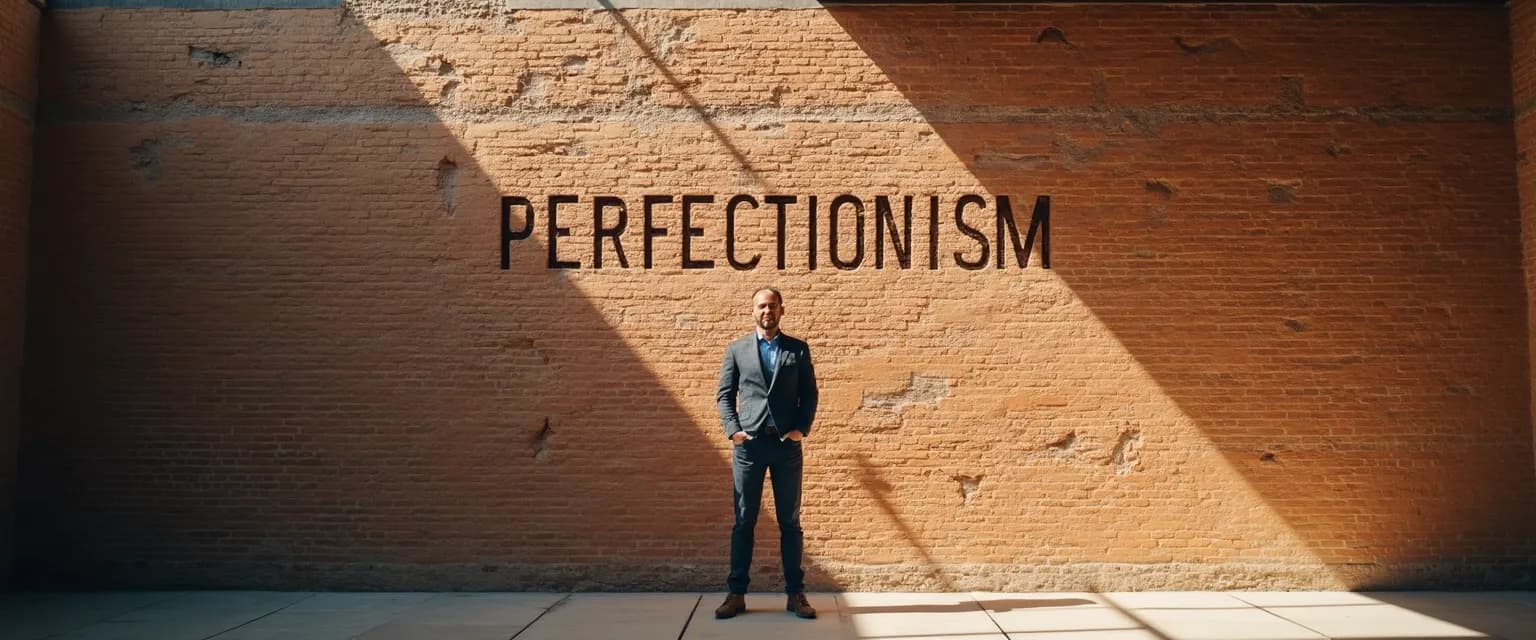Breaking Perfectionism: Overcoming Procrastination and Psychological Barriers
Ever noticed how perfectionism and procrastination and psychological barriers often go hand in hand? That spotless presentation you've been polishing for days or the email you can't quite send because it's not "perfect" yet? You're not alone. Behind these delays lies a fascinating psychological mechanism where the pursuit of perfection actually creates barriers to completion. Research shows that 70% of people experience these procrastination and psychological barriers at some point—with perfectionism being a primary culprit.
The irony? Striving for flawlessness often leads to worse outcomes than simply completing tasks at a "good enough" standard. Your brain creates these psychological blockades when the gap between your current work and your idealized version feels too wide to cross. The good news? There are practical, science-backed techniques to break through this perfectionism wall and transform your relationship with productivity and time management.
When we learn to recognize when "good enough" is actually perfect, we free ourselves from the paralysis of perfectionism and start making meaningful progress. Let's explore how to identify these barriers and overcome them with practical techniques.
Recognizing Procrastination and Psychological Barriers in Perfectionist Thinking
Perfectionism creates a self-defeating cycle where the fear of not meeting impossibly high standards leads to avoidance. These procrastination and psychological barriers manifest in specific thought patterns you might recognize: "I need more time to make this perfect," "This isn't good enough yet," or "I'll submit it when I'm completely satisfied."
The perfectionist's brain gets caught in what psychologists call the "completion bias"—we delay finishing tasks because the standards we've set are unreachable. This creates anxiety and reduced confidence in our abilities, reinforcing the psychological barriers that prevent progress.
Understanding the 80/20 rule is transformative here: 80% of value comes from the first 20% of effort. The remaining 80% of effort only yields 20% additional value. When you recognize this diminishing return, you can make smarter decisions about when to consider work complete.
Quick Self-Assessment: Are Your Standards Helping or Hindering?
Ask yourself these questions to identify if perfectionism is creating procrastination and psychological barriers in your work:
- Do you spend excessive time on minor details that few will notice?
- Have you missed deadlines because work wasn't "perfect" yet?
- Do you feel anxious when submitting work that's "merely good"?
- Is the standard you're aiming for actually necessary for the task?
If you answered "yes" to most of these questions, perfectionism might be creating unnecessary psychological barriers to your progress.
Practical Techniques to Overcome Procrastination and Psychological Barriers
Breaking through your perfectionism wall requires practical strategies that reframe your thinking and approach to tasks. Here are proven techniques to overcome procrastination and psychological barriers:
First, establish clear "done criteria" before starting any task. Define what "complete" actually looks like based on real requirements, not idealized standards. This creates a concrete finish line rather than an ever-moving target.
Second, implement the "good enough" technique by asking: "What would happen if I submitted this now?" Often, the answer reveals that your current work already meets the actual requirements.
Third, use time-boxing to limit perfectionist tendencies. Set a timer for a reasonable period to work on a task, and when time's up, move to the evaluation phase. This prevents endless refinement and forces decision-making.
Finally, celebrate incremental progress rather than just final outcomes. This builds momentum and creates positive reinforcement that counters perfectionist thinking. Each small win weakens the psychological barriers that fuel procrastination.
Moving Forward: Transforming Your Relationship with Procrastination and Psychological Barriers
Creating a sustainable practice of balanced standards doesn't happen overnight, but the benefits are immediate. As you implement these techniques, you'll notice reduced stress, increased productivity, and—ironically—often better quality work.
The key is consistency. Apply these approaches across different areas of life, from work projects to personal goals. You'll discover that embracing "good enough" thinking doesn't lead to mediocrity—it leads to completion, learning, and growth.
Ready to break through your perfectionism wall today? Start with one small task and apply these techniques to overcome procrastination and psychological barriers. Remember, progress beats perfection every time, and sometimes good enough is actually perfect.




